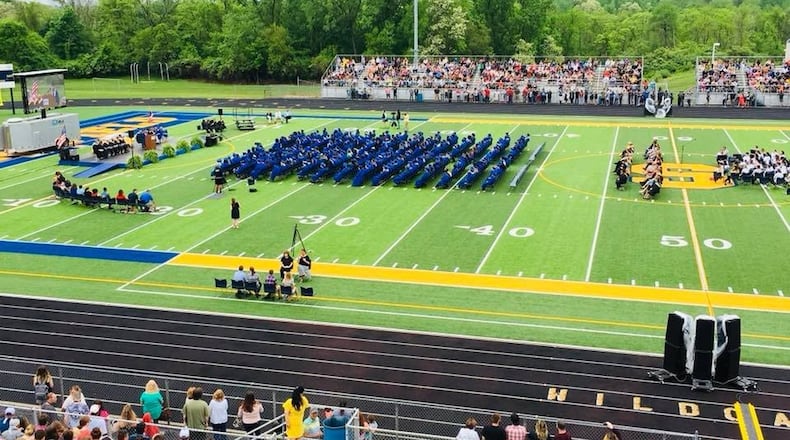Originally, the class of 2019 had three pathways to graduate: by scoring enough points on state tests taken throughout their four years in high school, getting a remediation-free score on the ACT or SAT or by earning an industry-recognized job credential from an approved state list, plus passing the WorkKeys workforce-readiness test by completing a work keys program.
Nearly 40 percent of Springfield City School students had not achieved any of the pathways by the beginning of this month — an indication that a large portion of local seniors would not graduate if the state didn’t act. In Dayton, about 50 percent of students didn’t qualify for graduation under the old requirements.
Nearly 40 percent of Springfield seniors in danger of not graduating
However, both the Senate and House overwhelmingly approved alternative graduation pathways. Meaning current seniors will likely get a reprieve from the new standards. Kasich still needs to sign the bill.
Under the new requirements, students still have to pass the required 20 classroom credits, take all state “end-of-course” tests and retake any English or math tests where they scored a 1 or 2 on the 5-point scale.
But instead of needing certain scores on those tests, students can earn a diploma by meeting two of nine unrelated standards that include 93 percent senior-year attendance, strong senior-year classroom grades, 120 work/service hours, a “capstone” project and a variety of other options. Students who already passed state tests would still qualify to graduate via that route.
The new pathways are fairer to students and are a better way to judge whether the seniors are prepared for graduation, Springfield City School Superintendent Bob Hill said.
“From the discussions I have with our principal and school counselors, they all believe this is a positive change,” Hill said. “I’m hoping that the change can be a catalyst for future permanent changes. As I’ve said multiple times, I still don’t believe the one-time snapshot test captures what our students are capable of doing. We need more authentic assessment and more opportunities.”
MORE: Springfield, Urbana schools score Ds on state report cards
Tecumseh Superintendent Paula Crew agrees.
“It is encouraging that our state legislatures have recently agreed to permit alternate pathways to graduation for our students in the 2019 and 2020 graduating classes,” she said in a statement. “Certainly, many staff, students, and parents throughout Ohio are taking a collective sigh of relief at the recent additional pathways in the graduation requirements. We want our students to be held to high graduation standards of course, but we also recognize that simply scoring a certain predetermined score on a state test should not be the sole determination for graduation eligibility.”
Working on future requirements now is important, she said.
“It is my hope that current high school educators and administrators are involved in the development of future graduation requirements. Once those requirements are determined, hopefully, they will be in place for quite some time,” Crew said.
The amendment sets largely the same graduation alternatives for the Class of 2020, with a few tweaks. Work/service hours and capstone projects for Class of 2020 students would have to meet standards to be set next spring by the Ohio Department of Education. The strong classroom grades option would apply to courses taken in both junior and senior year. The “good attendance” option would not be available to the Class of 2020.
Facts and figures
135: Springfield seniors who haven’t obtained 18 points on state tests in 2018
65: Springfield seniors who have scored between 14 and 17 points on state tests in 2018
122: Springfield seniors who didn’t obtain 18 points on state tests last year.
Unmatched coverage
The Springfield News-Sun provides unmatched education coverage including stories on report cards, school policy, finances and events.
About the Author
